CrimInovations: Decolonizing Narratives, Restorative Justice, and War Chronicles through Multi-Modal Methodological Approaches
When and Where
Speakers
Description
This innovative panel focuses on three different research projects using unconventional methodological approaches to research projection. Through this panel dedicated to methodology, we delve into the realm where visual data, art, community narratives and academic inquiry intersect, focusing specifically on their profound implications for criminology and sociolegal studies. The workshop serves as a dedicated space to explore and understand the methodological approaches underpinning the transformative power of art in these fields.
This is a free event, however, registration is required.
Prior to the seminar, join us for a light lunch from noon to 12:30 pm in the Centre Lounge. Please indicate your lunch RSVP for catering purposes when you register.
Key Themes
Deconstructing Research Practices
The panel begins by examining how art serves as a dynamic method of research investigation, challenging traditional methodologies prevalent in academic spaces. Art, with its capacity for sensory language—embracing emotions, subjectivity, aesthetics, imagination, and ambiguity—provides a unique avenue for unconventional research practices. By deconstructing and reimagining established approaches, participants will explore new possibilities for engaging with knowledge production.
Narratives and Community Centering
Art, as a medium, disrupts the hegemony often observed in academia, where theory tends to overshadow the lived experiences of individuals. This panel aims to challenge the conventional hierarchy where theory assumes authority by centering art and narratives, relegating personal experiences to a supporting role. The art gallery becomes a powerful platform for unsettling this hegemony both in terms of content and accessibility.
Decolonization, Restoration and Chronicling War
The panel culminates in an exploration of justice, emphasizing themes of decolonization and restoration. Sabeen's art exhibition, "Drawing Out the Threads of Property, Colonial Law, and Inequality through Karachi’s Qayyumabad," navigates the urban development landscape of Karachi to expose colonial legal legacies and ongoing state violence through neglect. This exemplifies how art, as a primary methodological tool, can contribute to the decolonization of the field by embracing alternative and unconventional knowledge production methods.
Meanwhile, Laura's project sheds light on the cultural expressions of individuals impacted by war, emphasizing their coping mechanisms beyond their often sterile and marginalized participation in the judicial process. An art-based approach not only facilitates restitution and restoration for participants but also challenges and reshapes the transitional justice model.
Giancarlo will talk about Bellingcat's work to document harm against civilians and civilian infrastructure in Ukraine using images captured by the victims of the war themselves, and how Bellingcat aims to support future legal justice and accountability processes with this data.
Panel Objectives
1. To critically evaluate the role of art in challenging and redefining traditional research practices.
2. To explore how narratives and community-centered approaches disrupt academic hegemony and amplify diverse voices.
3. To understand the transformative potential of art in addressing issues of justice, decolonization, and restoration within the context of criminology and sociolegal studies.
4. Using open sourced visual data as a method of establishing a collective narrative and potential for legal justice.
This panel invites scholars, practitioners, and artists alike to engage in a dynamic dialogue, fostering a deeper understanding of the profound impact of art as a methodological approach in criminology and sociolegal studies. Participants will be equipped with new perspectives and tools to enrich their research practices and contribute to a more inclusive and transformative academic landscape.
About the speakers

Laura Acosta-Zárate is currently a doctoral candidate in Criminology and Sociolegal Studies at the University of Toronto (Canada), where she focuses on the study of accountability of combatants recruited by illegal organizations during their childhood. She is a recipient of the 2021 Connaught Scholarship for Doctoral Studies and the 2023 National Scholarship Vanier awarded by the Social Sciences and Humanities Research Council of Canada (SSHRC).

Sabeen Kazmi is currently pursuing a PhD at the Centre for Criminology and Sociolegal Studies, specializing in South Asian Studies at the University of Toronto. Her doctoral research employs the art of storytelling to delve into the intricate connections between colonial property law in Pakistan and the contemporary hurdles faced in an era marked by intensified securitization, particularly within impoverished and overlooked neighborhoods in the global south. At the core of her scholarly pursuits lies a commitment to decolonizing academic approaches, reflecting a profound dedication to transformative perspectives in her field.
Giancarlo Fiorella is the Director for Research and Training at Bellingcat, an organization that uses open source data and methods to conduct investigations on a broad range of topics. He is also an assistant professor at Utrecht University's Global Justice Investigations Lab (GJIL). The GJIL teaches open source research methods to students from interdisciplinary backgrounds.
About events from the CrimSL Research Cluster for the Study of Race and Inequality
This workshop is presented by the CrimSL Research Cluster for the Study of Race and Inequality.
Accessibility
Please note that CG 265 is on the second floor of the Canadiana Gallery building, with stair access only as there is no elevator. If you have any access needs or if there are any ways we can support your full participation in this session, please email crimsl.communications@utoronto.ca and we will be glad to work with you to make the appropriate arrangements.


